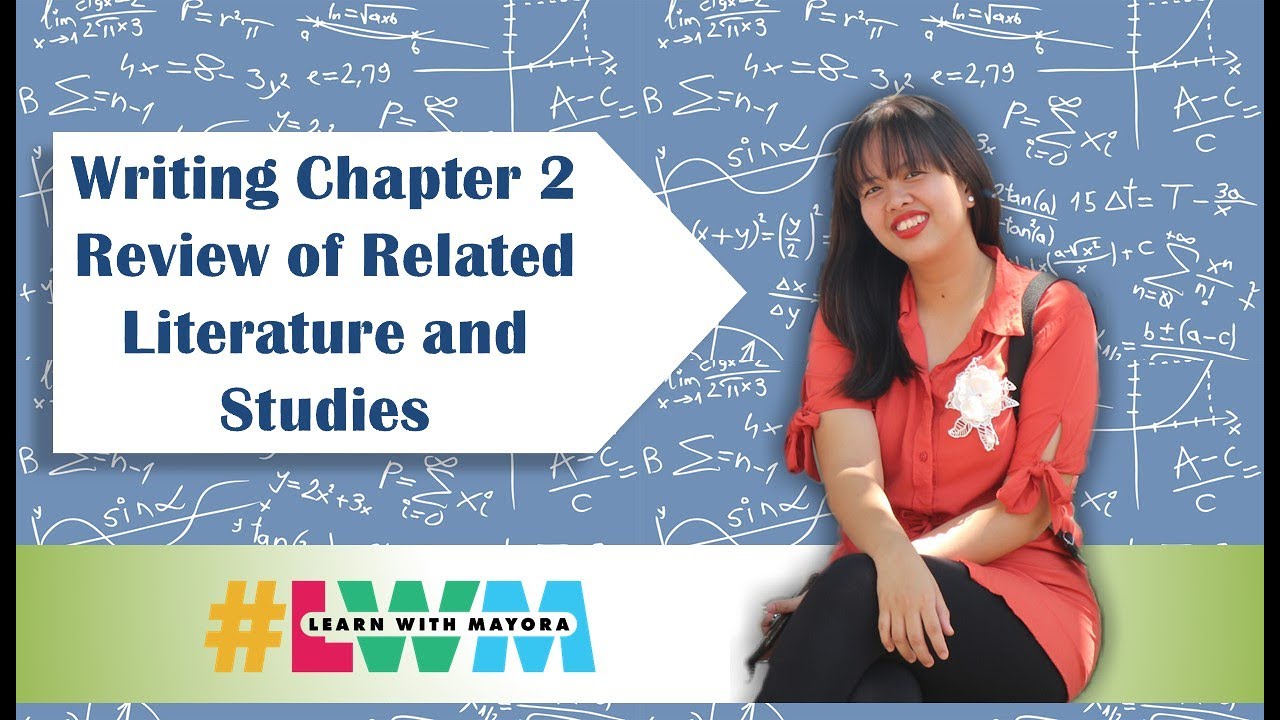Topic 4 Review of Related Literature and Studies
Summary
TLDRThis session focuses on crafting Chapter 2 of a research paper, emphasizing literature review and studies. It outlines the literature review's purpose, benefits, and the five-step writing process. The session distinguishes between theoretical, methodological, thematic, and chronological literature reviews, highlighting their unique contributions to research. It also addresses the importance of synthesis in academic writing and the avoidance of plagiarism. The assignment for participants includes conducting research, utilizing library resources, and adhering to APA 7th Edition citation standards.
Takeaways
- 😀 A literature review is a survey of scholarly resources on a specific topic, providing an overview of current knowledge and identifying gaps in existing research.
- 🔍 The benefits of a literature review include helping readers understand what is known about a topic, setting the stage for new research, and aiding the writer in gaining expertise on the subject.
- 🔑 The five steps in writing a literature review are: searching for relevant literature, identifying themes, debates, gaps, outlining and structuring the review, and synthesizing the literature.
- 📚 There are three types of literature reviews: theoretical, methodological, and thematic, each serving different purposes in research.
- 📈 Theoretical literature reviews focus on the development of theories, models, and definitions of key concepts, often forming the foundation of a theoretical framework.
- 🔬 Methodological literature reviews compare different research methods and approaches, analyzing results and conclusions from various disciplines.
- 📊 Thematic literature reviews organize literature into subsections addressing different aspects of a topic, which can help identify gaps and opportunities for extending previous research.
- 🕒 The length of a literature review in a research paper varies depending on the purpose and scope, but for a dissertation, it is usually at least 20 pages.
- 🔗 Synthesis is a critical element of academic writing that demonstrates comprehension, analysis, evaluation, and original creation by combining different sources into a new, structured text.
- ⚖️ To avoid plagiarism, it's important to properly cite sources, giving credit to authors and ensuring that the research is original and accurately referenced.
- 🏛️ Students are encouraged to maximize the use of AI tools for research and to obtain letters to access various libraries for a comprehensive literature review.
Q & A
What is the main focus of chapter 2 in the discussed research?
-Chapter 2 focuses on the literature review and studies, which includes thematic organization of literature and the writing of synthesis of the review literature and studies.
What is the purpose of a literature review in research?
-A literature review serves as a survey of scholarly resources on a specific topic, providing an overview of current knowledge, identifying relevant theories, methods, and gaps in existing research, which can be applied to one's own research.
How does a literature review benefit the reader and the writer?
-For the reader, it helps understand what is known about the topic without having to read multiple sources. For the writer, it aids in learning about the topic and gaining expertise through the process of researching and writing the literature review.
What are the five steps in writing a literature review?
-The five steps are: 1) searching for relevant literature, 2) evaluating sources, 3) identifying themes, debates, gaps, 4) outlining and structuring the literature review, and 5) writing the review.
What are the three types of literature reviews mentioned in the script?
-The three types are theoretical, methodological, and thematic literature reviews.
What is the role of a theoretical literature review in research?
-A theoretical literature review often forms the foundation of the theoretical framework, allowing for the discussion of various theories, models, and definitions of key concepts, and may involve arguing for the relevance of specific theoretical approaches or combining various concepts.
How does a methodological literature review differ from a theoretical one?
-A methodological literature review focuses on drawing sources from different disciplines and comparing results and conclusions from different research approaches, whereas a theoretical review focuses on theories and concepts.
What is the advantage of a thematic literature review?
-A thematic literature review allows for the organization of literature into subsections addressing different aspects of the topic, which can help identify gaps in literature, demonstrate opportunities for extending previous research, and provide a broader overview of relevant literature.
How long should a literature review be in a research paper?
-The length of a literature review depends on the purpose and scope of the research, but for a dissertation, it is usually at least 20 pages, while a standard research article may only require a few paragraphs or a few pages.
What is synthesis in the context of academic writing?
-Synthesis in academic writing is the process of extracting content from different sources to create an original text. It involves paraphrasing, summarizing, and creating a new structure that presents different perspectives and evidence on a topic, with proper referencing to avoid plagiarism.
What is the assignment mentioned at the end of the script?
-The assignment is to start working on chapter 2, which involves documenting and discussing literature, and ensuring to take a photo or picture as evidence of the meeting.
Outlines

此内容仅限付费用户访问。 请升级后访问。
立即升级Mindmap

此内容仅限付费用户访问。 请升级后访问。
立即升级Keywords

此内容仅限付费用户访问。 请升级后访问。
立即升级Highlights

此内容仅限付费用户访问。 请升级后访问。
立即升级Transcripts

此内容仅限付费用户访问。 请升级后访问。
立即升级浏览更多相关视频

MEMBUAT BAB 2 SKRIPSI - Panduan bagian per bagian

[Tagalog] Writing Chapter 2 Review of Related Literature and Studies with Example

Writing Chapter 2 | Review of Related Literature and Studies | Practical Research 2 | Ate Ma'am

How to Write RRL | Quantitative Research | IMRAD Part 3

Part 1 - How to Write the Review of Related Literature

How To Write A Literature Review In 2025 (Including AI Tools) - FREE TEMPLATE + Examples)
5.0 / 5 (0 votes)
